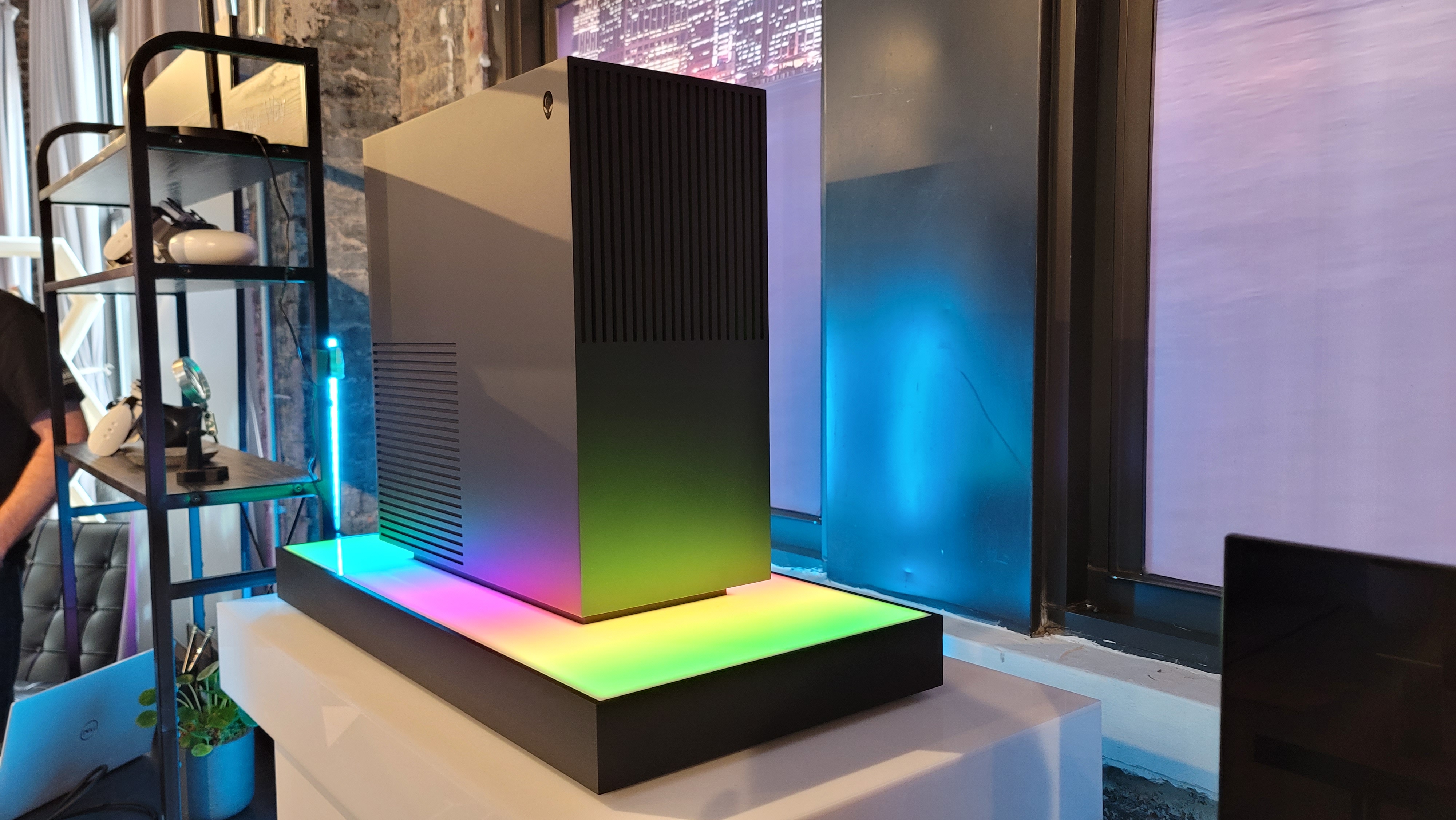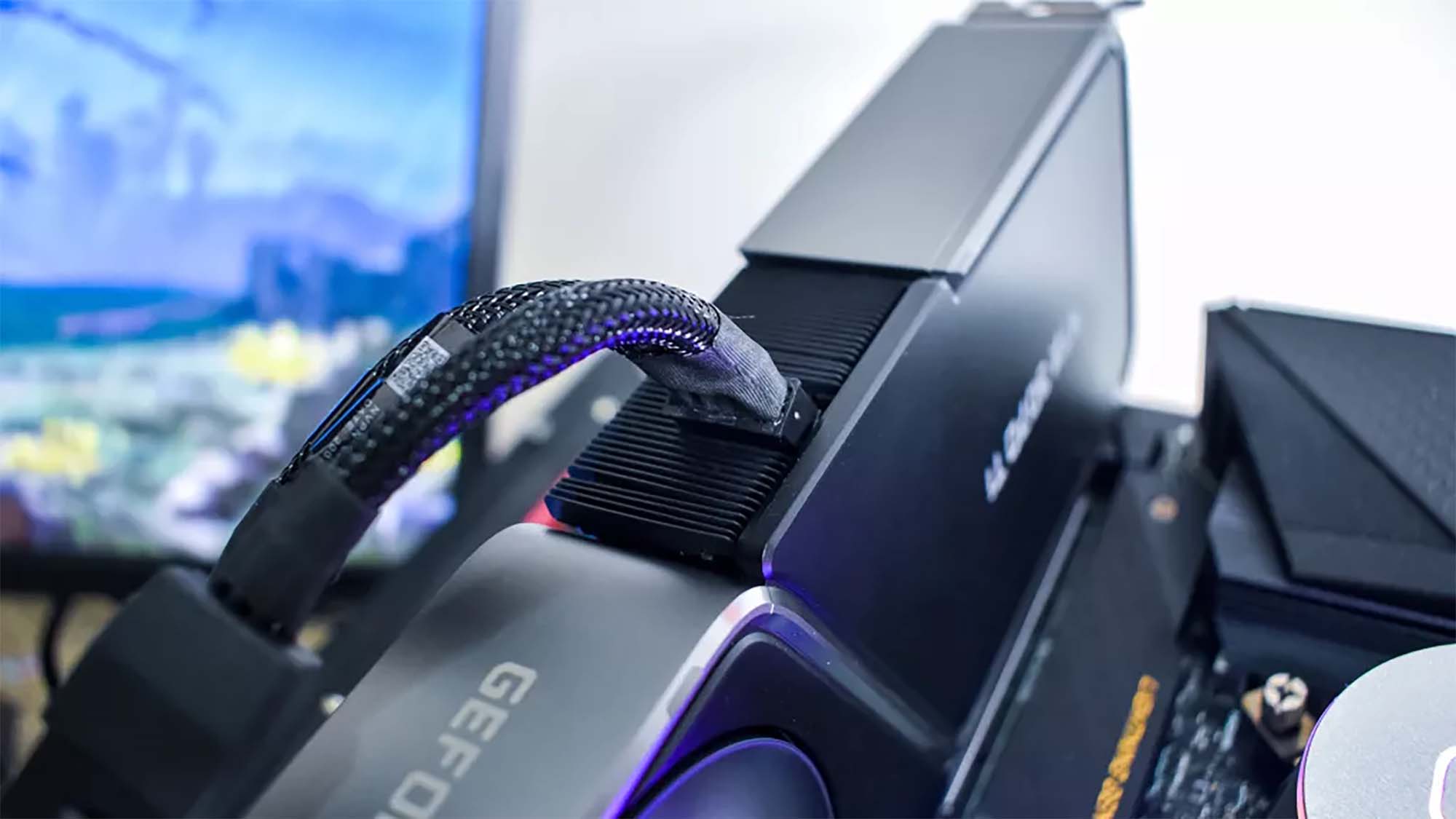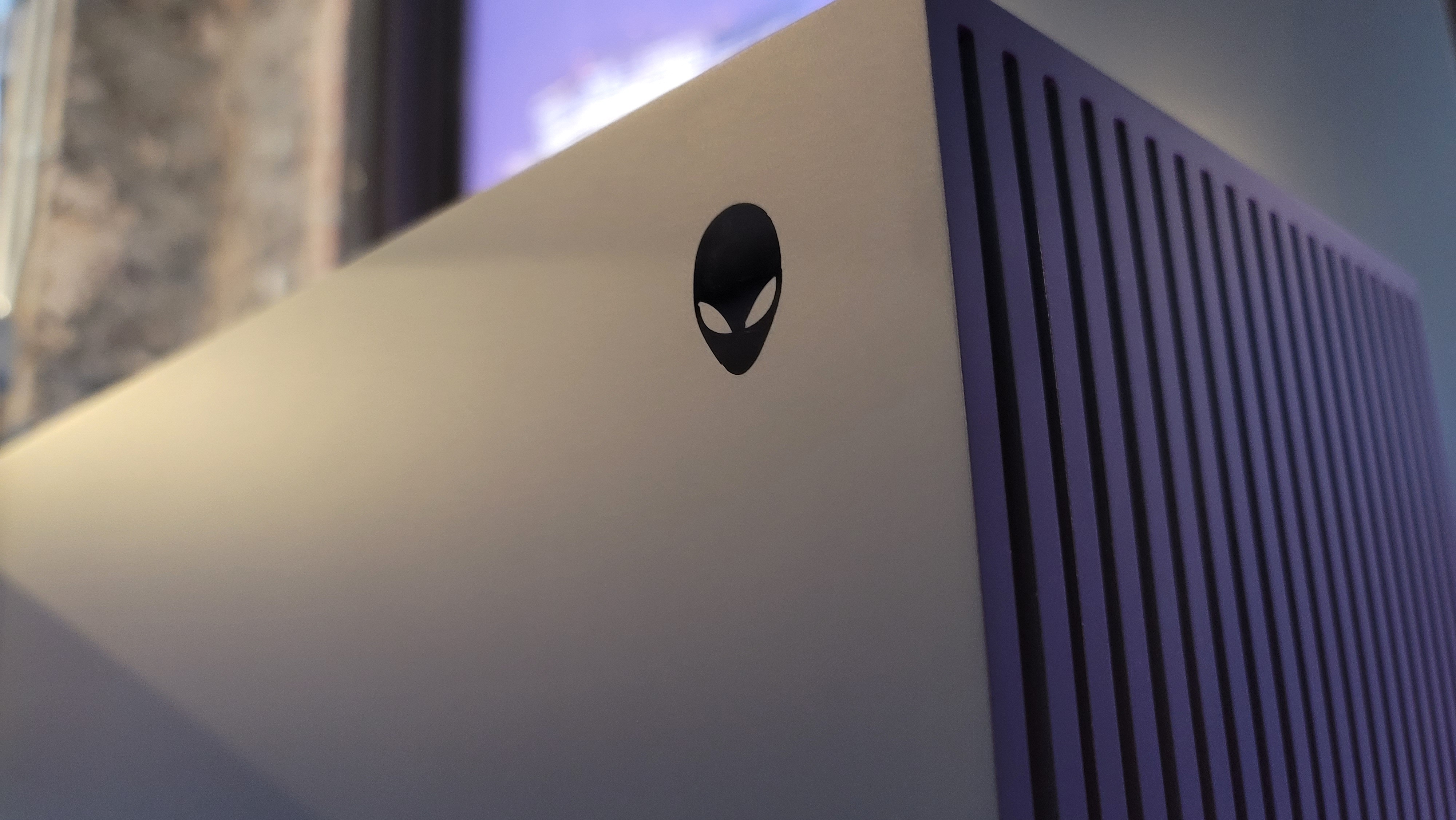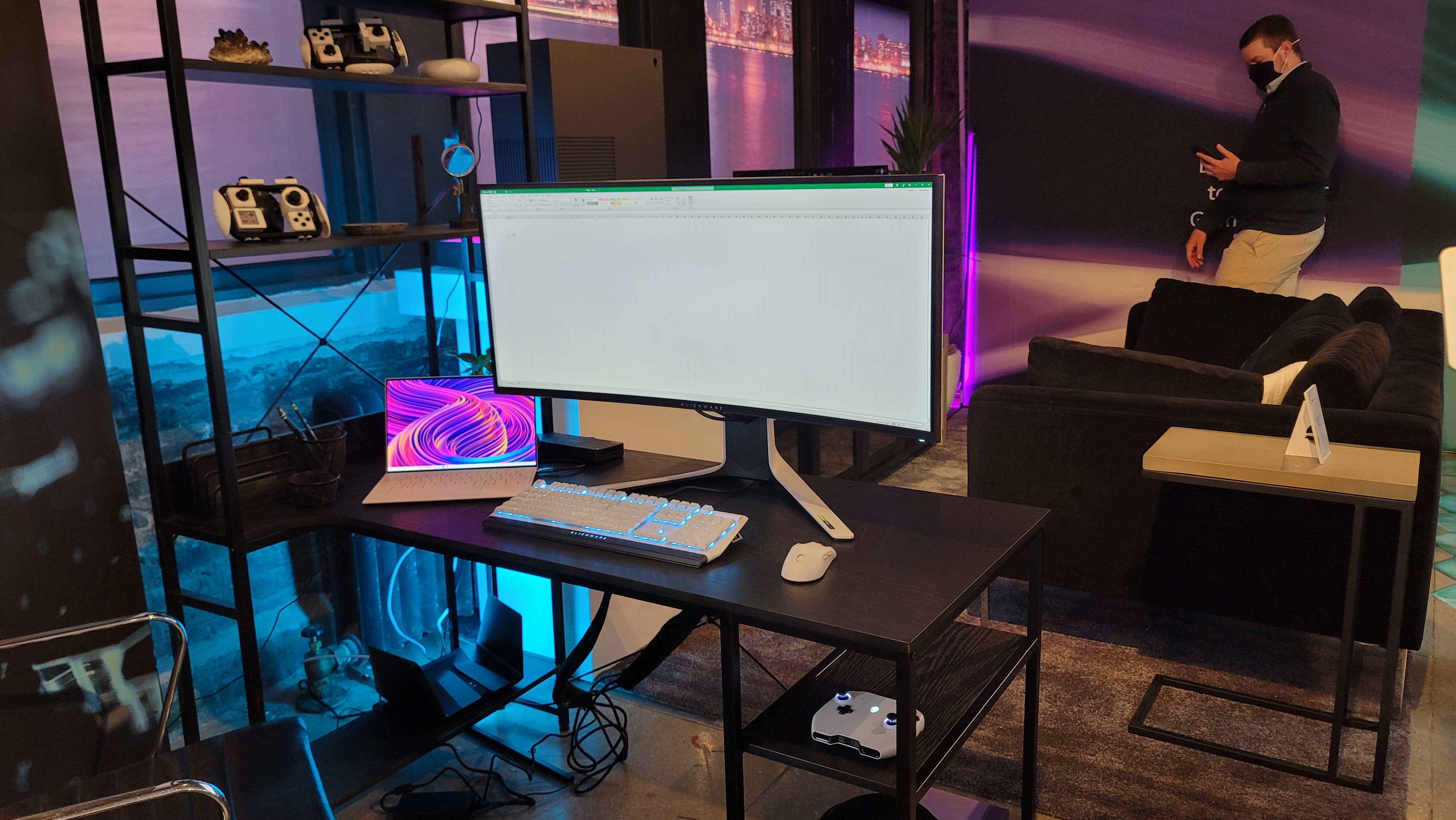Alienware made a concept gaming server to take on PC game streaming at CES 2022
Opinion: that's one way to do it...

While it seems like many companies spent the last couple of years creating cloud gaming services like Google Stadia and Nvidia GeForce Now, at CES 2022, Alienware unveiled a new concept that takes things a little closer to home.
The Alienware Project Nyx, if it ever comes out (big if), will essentially be a gaming server that you can use to play games remotely on any device in your home. The whole reason for this is that because all of the processing is done on a centralized device in your home, it would cut down on the latency that plagues cloud gaming platforms.
It is an incredibly cool concept, and I was even able to see it in action in New York, but because it's so early in development and possibly won't ever come out, it's probably best not to get your hopes up for this thing. But that doesn't mean we can't geek out about it a little bit.

We're talking some serious computing power here
One of the use cases Alienware has pitched for Concept Nyx is having everyone playing different games throughout the home on different devices, with the ability to suspend a game and pick it up in another room instantly, and we're not exactly talking light-weight titles here.
Cyberpunk 2077 was used to show this concept off to me, and while you may love or hate it, that game is not exactly easy on system resources. If you're going to have a centralized server that can run a game like Cyberpunk and still have enough leftover juice to run two or three other games simultaneously, you're going to need some incredibly powerful hardware.
Now that is pretty clear when you see the thing in person. It's a giant black obelisk with RGB lighting emitting around it - because of course it has RGB - and it looks like it weighs a good 60lb at least. Alienware obviously wasn't telling us what hardware was in it, but just from getting a look at it, it's nothing to shake a stick at.
The big problem with this would of course be cost. One of the benefits of a service like Google Stadia is that you pay a monthly fee and have access to constantly-updated hardware that can cost thousands of dollars up front - especially these days.
Sign up for breaking news, reviews, opinion, top tech deals, and more.
The level of power in Concept Nyx would probably mean an extremely high price tag - likely upwards of $10,000. Of course this is just a concept and there is no official price tag, but there's no way something like this would come cheap.






But it is super cool
So yeah, it's probably not super practical, but that's what these concepts are all about right? Trying to take a look at where PC gaming will be in the future, even if the finished product looks completely different - if it ever comes at all (looking at you Concept UFO).
When Alienware showed this thing off to me, I kept gravitating towards the giant box holding all the components and I want nothing more than to rip it open and see how it works. I wasn't allowed to, of course, but the idea of having hardware that powerful in your home, in order to have a centralized gaming PC your entire family can use at the same time is a neat idea to be sure.
And it's not like it would be without benefit. Because all the processing is done in your home, you wouldn't be reliant on Google, Nvidia or Microsoft to play your games (at least if they're not online-only). Instead, you could have a centralized library at home, and have instant and uninterrupted access to it.
It would be, in essence, the same as an in-home Plex server but for games. The only reason this hasn't happened before is because of the incredible amount of power that it would require. But it looks like Dell and Alienware may have found a way around that.
Still, it'll all depend on whether or not this thing ever comes to market. I'm not holding my breath, but I would absolutely love to take a swing at it.
- Here are the best gaming PCs

Jackie Thomas is the Hardware and Buying Guides Editor at IGN. Previously, she was TechRadar's US computing editor. She is fat, queer and extremely online. Computers are the devil, but she just happens to be a satanist. If you need to know anything about computing components, PC gaming or the best laptop on the market, don't be afraid to drop her a line on Twitter or through email.